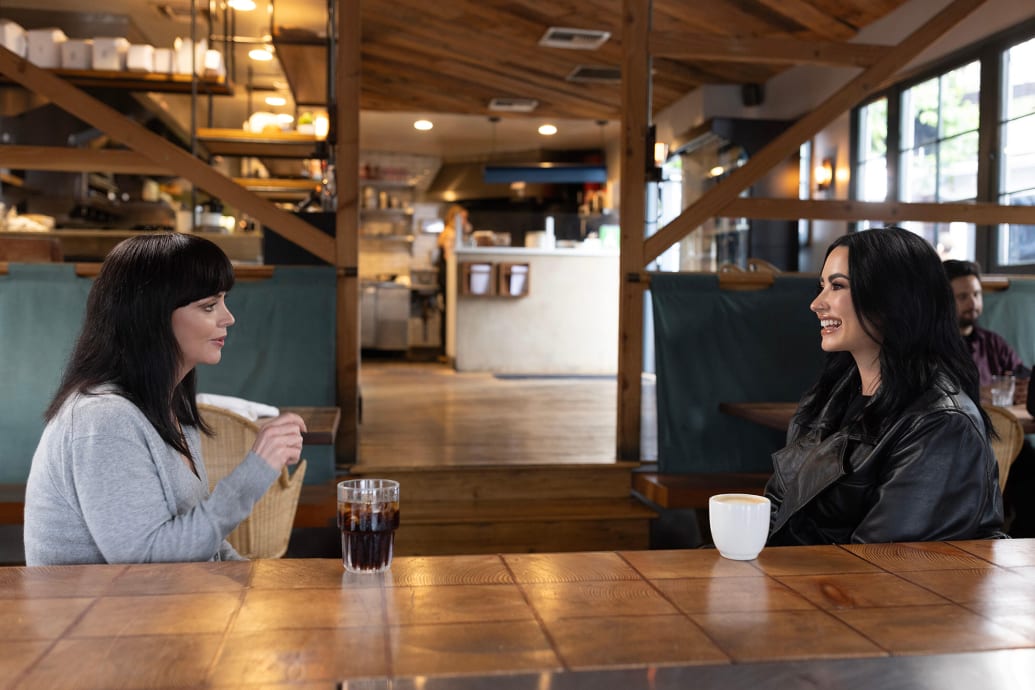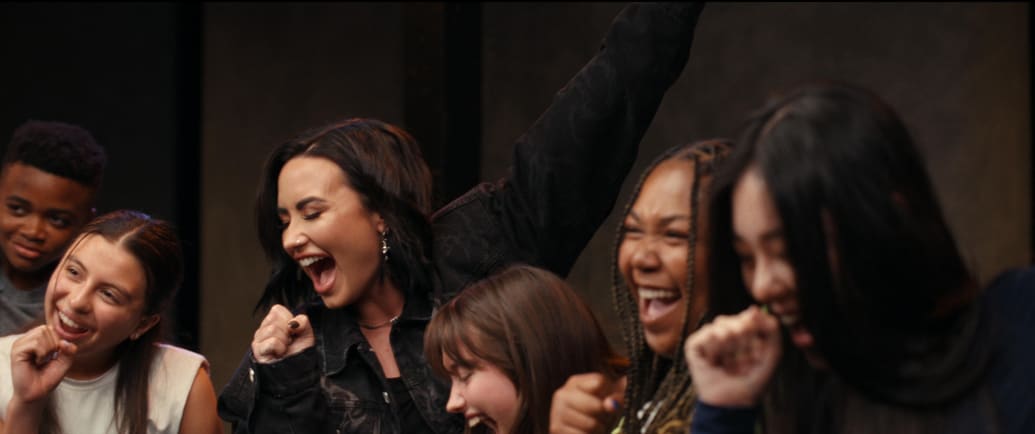Child Star, the new documentary about youth fame co-directed by Demi Lovato and Nicola Marsh, begins with a confession.
Lovato, one of our more open and candid celebrities, recounts the moment she watched a Shirley Temple movie on television at her great-grandparents’ house and decided her future: “I wanted to be the youngest and the best at what I do.”
That sentiment, shared by young actors and young people with dreams of working in any industry, is the monkey’s paw that curls around Child Star (whose title pointedly echoes the 2001 biopic Child Star: The Shirley Temple Story). The film ultimately provides an outlet through which a number of actors—who are partially famous for just how fresh-faced they were when they started out—put into words how that phenomenon can fundamentally alter a person’s perception of the world and their place in it.
Most of the Hulu film, which premieres Sept. 17, is made up of relatively intimate conversations between Lovato and her subjects, which alone are worth watching for the fascinating behind-the-scenes insights they give for shows and movies that were formative for a certain generation.

Christina Ricci and Demi Lovato
Victoria Time/Disney
She speaks to Drew Barrymore and Christina Ricci about finding mentors and parental figures through already established Hollywood stars like Steven Spielberg and Cher. Kenan Thompson recounts how almost all of his Nickelodeon money was stolen by a shady accountant. Fellow Disney star Raven commiserates with Lovato over the periods of dissociation they had while working on the studio’s shows. Jojo Siwa is open about losing opportunities after coming out. Director Chris Columbus, who made Home Alone and the first two Harry Potter movies, provides an insider’s perspective into how young stars are treated once they become massively famous.
Lovato shares some of the film’s most revealing moments with Alyson Stoner, who starred alongside her in Camp Rock (yes, they address “She’s really good!”). They reminisce about “Disney High,” the term young Disney stars jokingly used for their replacement for real high school, complete with on-set education programs and dating drama among all the actors, while also being candid about eating disorders and constant stress.
Between these chats, many of which are in quiet coffee shops or on someone’s home couch, the film points out ways in which the child star-ification of Hollywood has been intensifying. Lovato herself broke big on the Disney Channel during a time when a lot of the company’s programming was focused on movies and shows about kids becoming famous.
The Cheetah Girls, Hannah Montana, and Lovato’s own show about showbiz Sonny with a Chance all debuted in the 2000s, offering their youthful audience an aspirational look at what happens when you’re a teen star. There’s a running theme of the whiplash many of these actors suffered under the constant positive affirmation from the industry and the subsequent bullying, isolation, and harassment from peers and fans.
There’s even a bit about the surge of children on social media who don’t have the same protections as other celebrities their age do in a place like Hollywood, which is by nature working under decades of legislation meant to keep young actors from being abused. (As recently as last year, a law was passed allowing young people to sue their parents for the income they made when they were child influencers.) Barrymore puts it most succinctly when she explains how child stars are, first and foremost, a “commodity.”

Child Star, while cathartic in a sense, is never especially dark, and whenever it does touch on more serious matters—eating disorders, drug abuse, self-harm—it doesn’t linger too long, nor does it accuse anyone or anything specific for contributing to it. (Hulu is owned by a subsidiary of the Walt Disney Company, after all.)
True-crime docuseries Quiet on Set: The Dark Side of Kids TV, which debuted earlier this year, focused its attention on the misconduct allegations leveled against Nickelodeon producer Dan Schneider by many of the former child actors who worked for him. Child Star is not true crime, and features nothing so accusatory, but it posits instead that exploitation is inherent, and even expected, in an industry built on the backs of people who are too young to advocate for themselves.




![Tyson Foods Plant [Photo: Food Manufacturing]](https://southarkansassun.com/wp-content/uploads/2023/08/iStock_1185520857__1_.5e441daa51cca-600x337.jpg)







![Silverado Senior Living Management Inc. [Photo: Los Angeles Times]](https://southarkansassun.com/wp-content/uploads/2023/10/download-6-4-600x337.jpg)

![China's Wuhan Institute of Virology [Photo: Nature]](https://southarkansassun.com/wp-content/uploads/2023/09/d41586-021-01529-3_19239608-600x337.jpg)
















